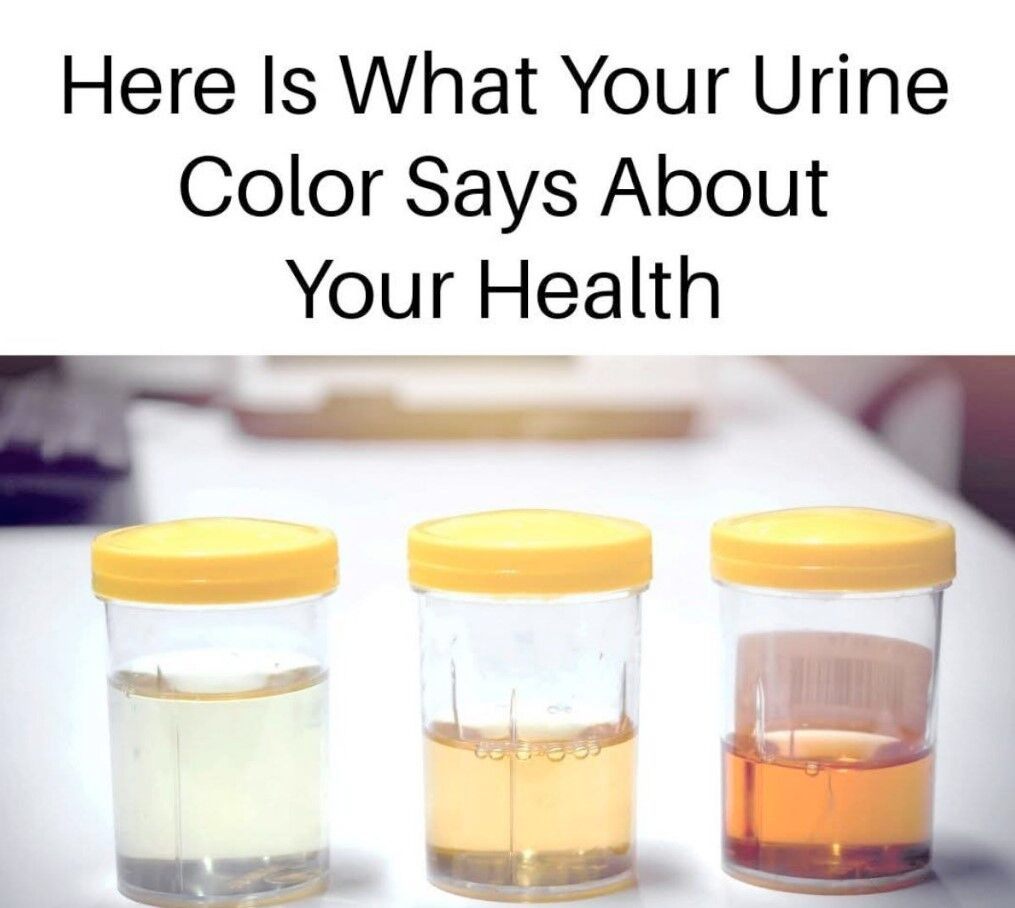ADVERTISEMENT
**What Your Urine Color Says About Your Health: A Comprehensive Guide**
Urine is often overlooked as a mere bodily waste, yet it is a vital sign of your overall health. The color of your urine, in particular, can provide significant insights into various aspects of your well-being. From hydration levels to potential underlying medical conditions, urine color can be a crucial indicator of your body’s internal balance.
In this article, we will explore the significance of urine color, what different shades and hues mean, and how you can use this knowledge to maintain or improve your health.
### The Science Behind Urine Color
Urine is primarily made up of water, waste products, and excess substances that your kidneys filter out of your bloodstream. The color of urine is influenced by a pigment called urobilin, a byproduct of the breakdown of hemoglobin from red blood cells. Urobilin is yellow, and its concentration varies depending on hydration levels and the presence of other substances in your body. The more concentrated the urine, the darker the yellow color, and the less concentrated it is, the lighter the shade.
Urine color can also be affected by the foods you eat, medications, and underlying medical conditions. For example, certain foods like beets or carrots can cause temporary color changes, while medications can lead to changes in hue as well. However, consistently abnormal urine colors may indicate something more serious.
Let’s explore what different urine colors may suggest about your health.
### Clear or Pale Yellow Urine
**Health Indicator:** Well-hydrated, Optimal health
Urine that is pale yellow to clear in color generally indicates that you’re well-hydrated. If your urine is consistently this color, it typically means you are drinking plenty of fluids, and your kidneys are functioning well to excrete waste from your body. This is the ideal color for urine, as it reflects a balance of water and waste products in your system.
Clear urine is not always a cause for concern, but it could sometimes suggest that you are overhydrated, which can lead to a dilution of important electrolytes in your body, particularly sodium. In this case, you may experience symptoms such as frequent urination and a feeling of bloating. In general, aim for a light yellow color to ensure you’re maintaining good hydration without excessive intake of water.
### Light Yellow or Lemon Yellow Urine
**Health Indicator:** Hydrated, Healthy kidneys
Urine that is light yellow or lemon yellow in color is also an excellent sign of good health. This color indicates that you’re consuming the right amount of water and your kidneys are working effectively. Light yellow urine suggests a good balance between water intake and waste elimination, which is key for overall health.
If you notice that your urine is consistently this shade, it’s a sign that you are likely maintaining a healthy hydration status. At this point, no action is needed other than to continue drinking a sufficient amount of water daily.
### Dark Yellow or Amber Urine
**Health Indicator:** Mild dehydration
Urine that appears darker yellow or amber may indicate mild dehydration. When you’re not drinking enough water, the body conserves fluids, leading to a higher concentration of urobilin in the urine. This results in a darker yellow color.
While a dark yellow color doesn’t necessarily point to a serious health issue, it serves as an early warning sign that you need to hydrate. Mild dehydration can lead to fatigue, dizziness, dry mouth, and difficulty concentrating. If you experience dark yellow urine, consider increasing your fluid intake to avoid the potential complications of dehydration, such as kidney stones or urinary tract infections (UTIs).
### Orange Urine
**Health Indicator:** Dehydration or presence of certain medications/foods
Orange urine can be caused by dehydration, as it may appear when there is a high concentration of waste in the urine. However, it is also common for urine to take on an orange hue due to the consumption of certain foods, medications, or supplements.
1. **Foods**: Foods like carrots, sweet potatoes, or beets can temporarily turn urine orange or pink, due to the pigments they contain. This is usually harmless and fades as the body processes the food.
2. **Medications**: Certain medications can cause your urine to appear orange. For example, medications like rifampin (used to treat tuberculosis) or phenazopyridine (a medication used to relieve pain from UTIs) may turn your urine orange. This is a known side effect and should not be a cause for alarm unless accompanied by other unusual symptoms.
3. **Dehydration**: If your urine is orange and accompanied by signs of dehydration such as dry skin, fatigue, or dizziness, you should hydrate immediately and monitor your fluid intake.
### Pink or Red Urine
**Health Indicator:** Presence of blood or food coloring
Pink or red urine can be alarming, as it may suggest the presence of blood in the urine. However, there are several potential causes for red or pink urine that are not related to serious health problems:
1. **Foods**: Certain foods, particularly beets, berries, or rhubarb, contain pigments that can turn urine pink or red. This discoloration is temporary and harmless, typically disappearing after a few urinations.
2. **Medications**: Some medications, such as the antibiotic rifampin or the laxative phenolphthalein, can turn urine red or pink. If you are taking these or similar medications, you may notice this color change in your urine.
3. **Blood in Urine (Hematuria)**: If the pink or red color persists without any dietary changes or medications involved, this could indicate blood in the urine, a condition known as hematuria. Blood in the urine may be a sign of a urinary tract infection (UTI), kidney stones, bladder infections, or even more serious conditions like bladder cancer or kidney disease. If you notice blood in your urine, it is essential to seek medical attention immediately to determine the underlying cause.
For Complete Cooking STEPS Please Head On Over To Next Page Or Open button (>) and don’t forget to SHARE with your Facebook friends
